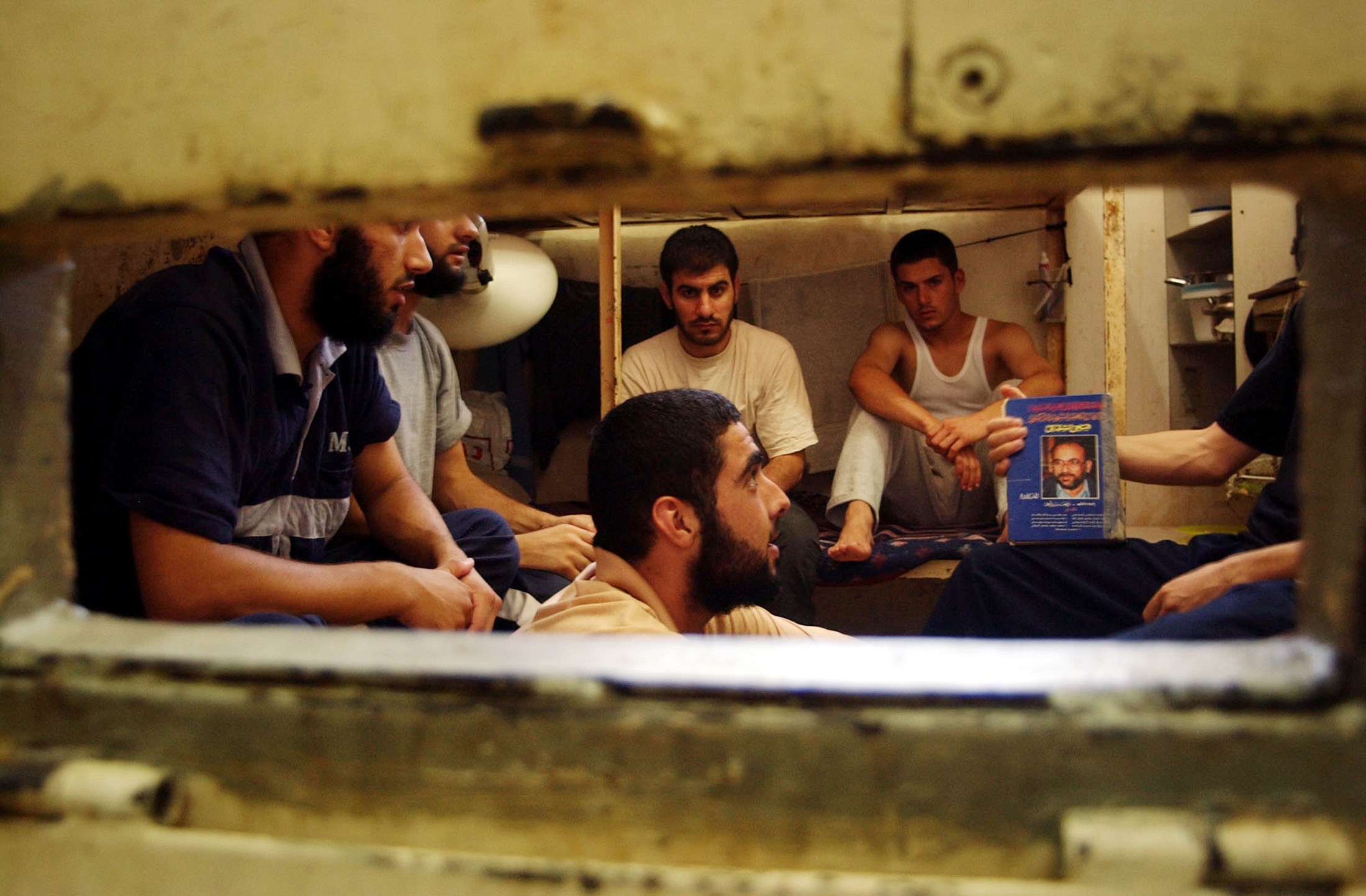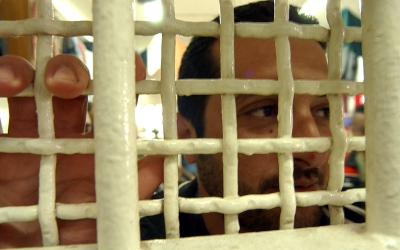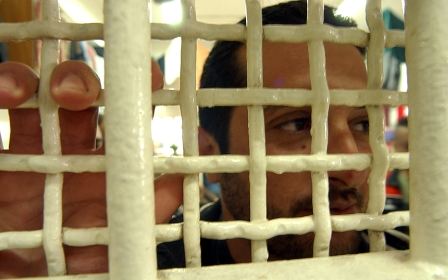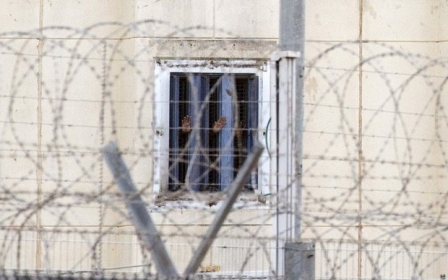Jordanian woman on hunger strike in Israeli prison is refusing medical treatment

A Jordanian woman held in Israeli prison has refused medical treatment as she approaches a month on hunger strike against being held in administrative detention, her father said on Tuesday.
Heba Labadi, 24, is one of two Jordanian citizens arrested by Israel and put under administrative detention, a system that allows Israeli authorities to hold people without charge or the possibility of appeal for prolonged periods of time.
Labadi’s father, Ahmed al-Labadi, told MEE that his daughter was arrested on 20 August on her way back from a relative’s wedding in the occupied West Bank town of Yabad, near the city of Jenin.
Heba’s father told the Jordanian radio station Al-Balad on Tuesday that his daughter has refused to be transported to an Israeli hospital to receive treatment.
“Her lawyer appealed to the court against the administrative detention, but we do not know if the appeal will be accepted," Heba’s father told Al-Balad radio.
New MEE newsletter: Jerusalem Dispatch
Sign up to get the latest insights and analysis on Israel-Palestine, alongside Turkey Unpacked and other MEE newsletters
Ahmed said that a list of charges against Heba had not been presented to her lawyer yet.
"Her mother applied for a visa through the Red Cross to visit her, but she was denied. She tried again through Jordan’s foreign ministry and was also denied a visa,” he said.
Daily interrogation of 17 hours
Samer Simaan, one of her lawyers, all members of the Palestinian prisoners' rights group Addameer, visited Labadi early in October.
He said in a statement at the time that during the first 16 days of detention, Labadi had been interrogated by Israeli authorities for 17 hours a day, from 9 am to 2 am.
Labadi was also denied legal help for the first 25 days from the time of her arrest.
"Heba’s isolation cell is filthy and has surveillance cameras. The designated area for bathing is completely exposed, and therefore she has not been able to shower since arriving at Jalameh prison.”
The lawyer added that her cell doesn't have windows but has an air conditioning unit that keeps it cold, and she has only one dirty bed sheet to cover herself with.
Heba is not allowed to walk in the prison’s yard.
“She confirmed that she is not taking any vitamins, nutritional supplements or salt, and she is content with only drinking water. She has lost eight kilograms since starting her hunger strike,” Simaan said.
Abdel-Rahman Meri, 29, is the second Jordanian languishing in Israeli prison.
Meri was arrested by Israel as he attempted to cross the Allenby Bridge from the occupied West Bank to Jordan with his mother on 2 September.
Labadi and Meri are the first two Jordanians to be placed in administrative detention, but they are not the only ones detained. There are 23 Jordanians being held in Israeli prisons serving different sentences.
Exceeding 100 days of hunger strike
There are currently five Palestinian detainees on hunger strike, four of them are from West Bank towns and one is from occupied East Jerusalem.
Ahmed Ghanam, a 42-year-old Palestinian from the village of Dura in the southern West Bank, began his hunger strike 101 days ago on 14 July, the day he was arrested and placed in detention without charges.
An Israeli court renewed Ghanam's administrative detention on 6 September, when he was on his 55th day of hunger strike.
Ghanam is now in critical condition, having been diagnosed with cancer before being detained.
The Palestinian Society Prisoner's Club (PPS) said in a statement on Monday that Ghanam, a father of two, is set for a court hearing on Wednesday.
“Ghanam entered a critical health stage and he was hospitalised last week at Kaplan Medical Centre, while the Israeli occupation authorities are denying Ghanam’s relatives a visit. He was put in solitary confinement on the first day of his hunger strike,” PPS said.
Tarek Gaadan, a 46-year-old from the village of Deir Abu Mishaal in the northern West Bank, has also been on hunger strike for 84 days, according to PPS.
Gaadan has been arrested 17 times by Israeli forces since 1989 and has spent almost 11 years in prison, most of which were under administrative detention. He was accused of being a member of Islamic Jihad in the West Bank.
Gaadan went on hunger strike for 96 days in 2013 in protest against being administratively detained and was subsequently released.
He was arrested again in February and was put on administrative detention for six months. In August, he launched his hunger strike after Israeli authorities extended his detention for another period.
Ismail Ali, 30, from Abu Dis, east of East Jerusalem, has been on hunger strike for 91 days. Arrested in January, he launched his hunger strike in June after the first six months of his administrative detention was renewed.
He is also a former prisoner who had spent almost seven years in Israeli prisons.
Between Ghanam, Ali and Gaadan, the three men have spent 27 years under administrative detention.
The two other Palestinian prisoners who have joined the strike are: Ahmed Zahran, 42, also from Deir Abu Mishaal, and who is on his 30th day of a hunger strike; and Musaab al-Hindi, 29, from Tall in the northern West Bank, who has been on hunger strike for 18 days.
According to Addameer, 5,150 Palestinians have been detained by Israel as of July - 460 of whom are under administrative detention.
Middle East Eye delivers independent and unrivalled coverage and analysis of the Middle East, North Africa and beyond. To learn more about republishing this content and the associated fees, please fill out this form. More about MEE can be found here.






